
Meghan Rosen is a senior writer who reports on the life sciences for Science News. She earned a Ph.D. in biochemistry and molecular biology with an emphasis in biotechnology from the University of California, Davis. Her dissertation work involved studying mutated proteins in liver and kidney cancer. She later graduated from the science communication program at UC Santa Cruz. Prior to joining Science News in 2022, she was a media relations manager at the Howard Hughes Medical Institute. Her work has appeared in Wired, Science, and The Washington Post, among other outlets. Once for McSweeney’s, she wrote about her kids’ habit of handing her trash, a story that still makes her (and them) laugh.

Trustworthy journalism comes at a price.
Scientists and journalists share a core belief in questioning, observing and verifying to reach the truth. Science News reports on crucial research and discovery across science disciplines. We need your financial support to make it happen – every contribution makes a difference.
All Stories by Meghan Rosen
-
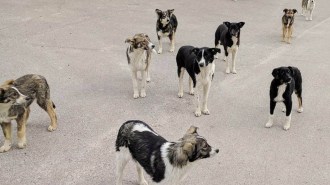 Animals
AnimalsWhat the first look at the genetics of Chernobyl’s dogs revealed
Dogs living in the Chernobyl Nuclear Power Plant industrial area are genetically distinct from other dogs, but scientists don’t yet know if radiation is the reason.
-
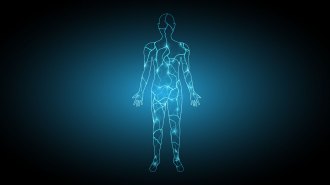 Life
Life‘We Are Electric’ delivers the shocking story of bioelectricity
Sally Adee’s new book spotlights the underexplored science of the body’s electricity and investigates how bioelectricity could advance medicine.
-
 Health & Medicine
Health & MedicineHere’s how lemon juice may fend off kidney stones
Lemon nanoparticles slowed formation of kidney stones in rats. If the sacs work the same way in people, they could help prevent the painful crystals.
-
 Health & Medicine
Health & MedicineThe deadly VEXAS syndrome is more common than doctors thought
The recently discovered inflammatory disease, VEXAS syndrome, typically occurs in men over 50, affecting nearly 1 in 4,000 in the United States.
-
 Health & Medicine
Health & MedicineProcrastination may harm your health. Here’s what you can do
Scientists have tied procrastination to mental and physical health problems. But don't panic if you haven't started your New Year's resolutions yet.
-
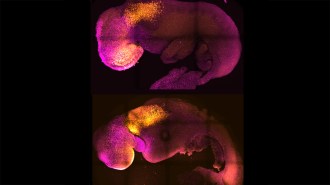 Health & Medicine
Health & MedicineThese 5 biomedical advances gave 2022 a sci-fi feel
Big steps in biology and medicine include pig to human organ transplants, synthetic embryos and a fully complete human genome.
-
 Health & Medicine
Health & MedicineSome common medical terms may be more confusing than doctors think
Got ‘bugs in your urine’ or an ‘impressive’ X-ray? Doctors’ jargon can be confusing, especially terms with different everyday and medical meanings.
-
 Animals
AnimalsDry pet food may be more environmentally friendly than wet food
The environmental cost of wet pet food is higher than dry food, scientists say. That may be because wet food gets most of its calories from animals.
-
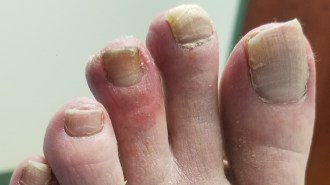 Health & Medicine
Health & MedicineGot a weird COVID-19 symptom? You’re not alone
From head to COVID toe, doctors have seen a bevy of bizarre cases.
-
 Health & Medicine
Health & MedicineAt a long COVID clinic, here’s how doctors are trying to help one woman who is struggling
As more people experience long-term health problems from COVID-19, long COVID clinics try to help patients manage symptoms, like brain fog and fatigue.
-
 Health & Medicine
Health & MedicineWhy daylight saving time just isn’t healthy, according to science
Shifting daylight from morning to evening puts our bodies and brains out of sync with our clocks, leading to a host of potential health issues.
-
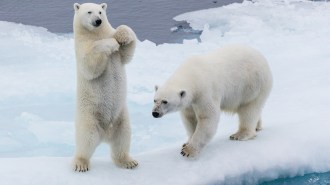 Animals
AnimalsHere’s how polar bears might get traction on snow
Microstructures on the Arctic animals’ paws might offer extra friction that keeps them from slipping on snow, a new study reports.